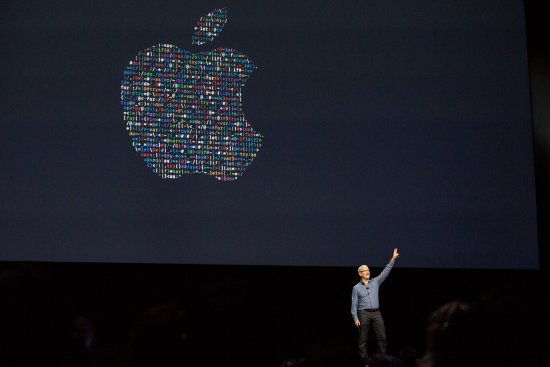
Apple is opening Siri and iMessage to developers as people begin to change the way they use their phones
“I think you will see us open up more in the future,” Apple CEO Tim Cook said the AllThingsD D11 conference in 2013. Now, roughly three years later, we have the clearest picture yet of what a more open Apple looks like.
During its Worldwide Developers Conference on June 13, Apple announced a slew of changes to some of its apps and services that allow them to work with third parties. Siri, iMessage, Apple Maps, and the Phone app are among the Apple services that developers will be able to tap into. This means iPhone owners will be able to do things like call an Uber through Siri, order food without leaving the Messages app, and make reservations in Apple Maps.
Apple’s decision to let Siri and its messaging app access third party apps is by no means an original one: Google, Microsoft, and Facebook have all made similar improvements recently. And while the announcement may seem out of character given the company’s infamous walled-garden approach, it’s actually in line with the updates Apple has made to its iPhone software in years past.
Apple has gradually made it easier to multitask and switch between apps without having to navigate back to the home screen. These newly announced integrations are bound to make that all the more true in iOS 10, since users will be able to transfer money to a friend without leaving their iMessage conversation or call an Uber by asking Siri instead of switching apps.
Consider last year’s iOS 9 update. Apple added back buttons to apps so that one could easily jump from Safari to Mail and back to Apple’s browser without the middle step of hitting the home button. Siri in iOS 9 also began to proactively suggest apps that you might want to open, in some cases preventing the need to find a specific app on the home screen.
Before iOS 9, Apple laid the foundation for the third-party ties it announced today with an older update. The company’s previous version of the software from 2014 introduced app extensions, which brought elements such as keyboards from other app makers and photo editing tools from outside apps into Apple’s own iOS apps. This, in turn, eliminated the need to open a specific app just to use one or two editing features.
Apple’s move is indicative of a larger trend that’s accelerated in recent months, one in which we spend less time inside apps and more time interacting with virtual assistants and messaging agents. Mary Meeker, a partner with Kleiner Perkins Caufield & Byers, highlighted this shift in her widely read report on the state of the Internet, noting that home screens are less likely to be our portals to the Internet in the future.
Device makers like Apple have an incentive to give developers greater access to their own software. Most products and apps aren’t very useful unless they’re compatible with a wide range of apps and services. Amazon’s Echo is also a sterling example of this: a large part of the reason it’s become a success is because Alexa works with more than 1,000 apps and services. If it only worked with Amazon’s apps, or was only capable of retrieving search queries, it wouldn’t provide the same level of convenience.